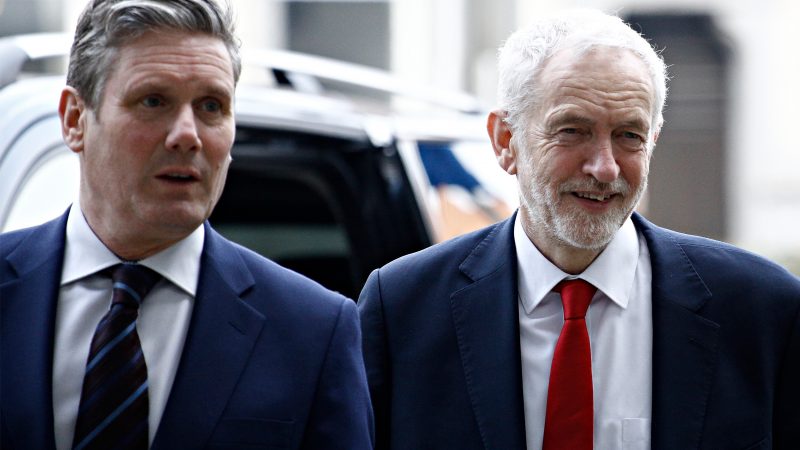
It is one of the timeless myths of British politics that oppositions don’t win elections but governments lose them. And this time it seems that Rishi Sunak has been doing as much as possible to prove the cliché right.
From catching his own party unaware that an election was on its way to launching it in the rain and leaving the beaches of Normandy early, the Prime Minister’s campaign has been continually hit by error and confusion. But just because a myth seems true, it doesn’t make it so.
And this time, Keir Starmer and the Labour Party have done far more to get themselves into the position that they currently enjoy than the vast majority of pundits acknowledge.
Survey shows Starmer’s success
The UCL Policy Lab and More in Common have published a major poll that reveals just how Starmer’s lead is currently built. That lead is, of course, partly a response to the perceived weaknesses of the Conservative party, the chaos of parliamentary in-fighting and the struggles of a flat-lining economy.
But it is also based on a stronger positive sense among core groups in the electorate. Seen this way, the appeal of Starmer’s Labour Party is based on one element above all others and that is: respect.
The polling is clear. Keir Starmer and the Labour Party are currently passing the key ‘respect test: the judgement voters are making as to whether those standing for election properly respect people like then. This is a huge change from recent years.
READ MORE: Will the Lib Dem policy to rejoin the EU single market put pressure on Labour?
Under Jeremy Corbyn, those voters who are now switching from Conservative to Labour were firmly of the view that Labour did not respect people like them.
In fact, only 14% said that Corbyn’s Labour did respect them. Now, that feeling has entirely reversed. Our polling shows that 69% of this group say that Starmer’s Labour Party does respect people like them, while only 15% say it does not. Moreover, this change in mood seems to be closely associated with the Labour leader himself.
These “respect switchers” are currently more likely than any other group in the electorate to say that Starmer personally respects people like them. In fact, 76 per cent of this group say so, almost twice as high as the national average of 41 per cent. These self-same voters also believe that Starmer not only respects them but respects the values and institutions that they care about too. 69% of Conservative-Labour switchers report that they believe Starmer “puts country before party”, which is double the national average of 35 per cent.
What changed?
The reason for this success – at this stage of the election, at least – probably resides in many factors. We know that many voters respond warmly to discovering that Starmer was brought up in a working-class household – explaining the many references to his “toolmaker” father in the stump speeches and interviews.
We know too that Starmer has worked hard to reduce what his team sees as Labour’s potential weaknesses in respect, including by shifting the party’s position on Brexit, immigration and crime closer to the apparent perspectives of this core group of voters. Our research reveals something potentially far more important, though. And that is that the public largely shares Starmer’s focus on real-world, tangible improvement – what he has sometimes called “ordinary hope” – over the kind of radical, grandiose promises associated with his Labour predecessor and some of his Conservative rivals too.
READ MORE: New YouGov poll reveals how popular Labour policies are with voters
While the research is clear that there is significant demand for change, our polling also shows that after the instability and over-promising of recent years, the public are more likely to favour small, incremental, improvements to their everyday lives.
There is no appetite for bold or radical plans that offer magical transformation overnight. Indeed, this is so much the case that despite this being widely described as a “change” election, 78% of the public say that stability should be the goal of the next government, higher than any other metric, while 74% simply want the government to ‘avoid chaos’.
All of this shows precisely why the strategy that Starmer has outlined – avoiding grandiosity, promising rather humble actions in which we can all play a part, rather than bold solutions to be heroically imposed from on high – appears particularly well-suited to the moment in which we live. If there is a Labour majority in a few weeks’ time, it will be in large part because he has built a coalition around these ideas.
The question then, of course, will be whether he can govern in this spirit too.
Read more of our 2024 general election coverage here.
If you have anything to share that we should be looking into or publishing about this or any other topic involving Labour or about the election, on record or strictly anonymously, contact us at [email protected].
Sign up to LabourList’s morning email for a briefing everything Labour, every weekday morning.
If you can help sustain our work too through a monthly donation, become one of our supporters here.
And if you or your organisation might be interested in partnering with us on sponsored events or content, email [email protected].




More from LabourList
‘Hope starts young: Why Labour must tell the story of a better tomorrow’
LGBT+ Labour suspends AGM amid fears of legal action over trans candidates running for women’s roles
‘Hyperlocal messaging can help Labour win elections: Here’s how’